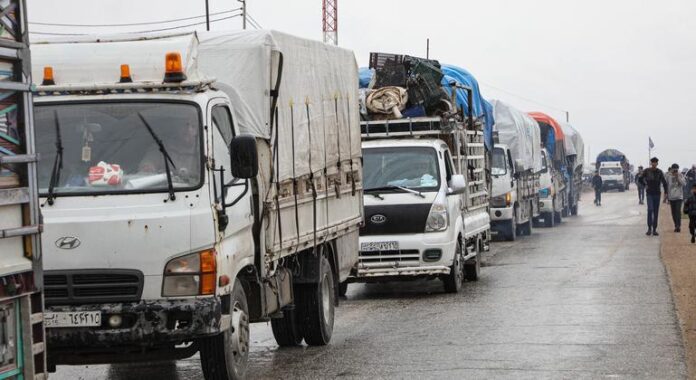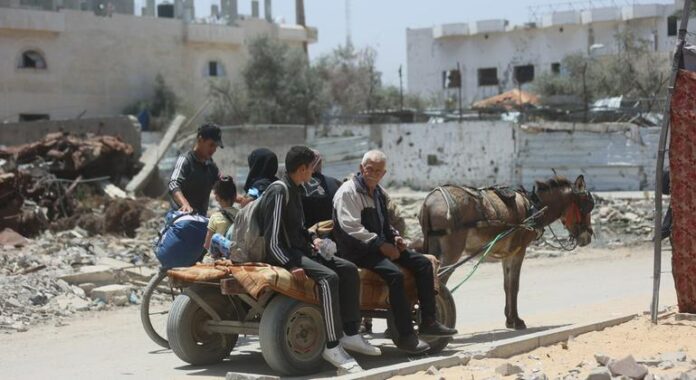After more than a decade of conflict and severe economic stagnation, lifting the punitive measures will encourage long-term recovery and peacebuilding in Syria, Amy Pope, IOM Director-General, said in a statement.
“The lifting of sanctions sends a powerful message of hope to millions of displaced Syrians, both within the country and across the region,” she said.
$800 billion lost
UN estimates suggest that the Syrian economy lost over $800 billion during the 14-year civil war.
According to a UN Development Programme (UNDP) report, if the current annual growth rate continues, Syria’s economy will not return to its pre-conflict gross domestic product (GDP) levels until 2080.
The sanctions relief from the US, UK and EU – covering around $15 billion in restricted assets and trade measures – could unlock important investment opportunities for rebuilding key infrastructure, IOM said.
Most of these sanctions were originally imposed during the Assad era and have long been blamed for Syria’s hindering economic recovery.
Alongside the sanctions relief, Saudi Arabia and Qatar pledged to pay $15.5 million of Syria’s arrears to the World Bank. Together with Türkiye, they also offered to fund public salaries and support energy infrastructure.
These changes reflect “momentum from re-engagement and reconstruction,” IOM added.
A country torn apart
The Syrian conflict, which began March 2011 after pro-democracy protests against Bashar Al-Assad, lasted almost 14 years. During this time, tens of thousands of Syrians were killed and countless more disappeared. The fighting and insecurity also displaced more than 10 million civilians – within the country or as refugees outside its borders.
Poverty rates tripled, affecting 90 per cent of the population, with 66 per cent living in extreme poverty.
Since the end of the war in December 2024 with the overthrow of the Assad regime, half a million Syrian refugees have returned. A further 1.5 million internally displaced persons (IPDs) have also returned to their places of origin.
They returned home amidst great hope for the future of Syria, but also severe economic projections.
“Hope must be matched with concrete support,” Director General Pope said. “Syrians need not just the ability to return but the means to rebuild their lives in safety and dignity.”
Moving from relief to resilience
The UN estimates that over 16.5 million Syrians – roughly 70 per cent of the population – continue to require humanitarian assistance.
But funding shortfalls have complicated aid efforts. Already in the last week of May, only 10 per cent of the estimated $2 billion needed between January and June to assist eight million Syrians has been received.
Ms. Pope noted that it is important for the Syrian people and economy to begin moving towards longer-term solutions outside of humanitarian aid.
“While humanitarian assistance remains critical, IOM urges donors and development partners to expand their focus to medium- and long-term recovery. A transition from relief to resilience is not only necessary – it is urgent,” she said.







